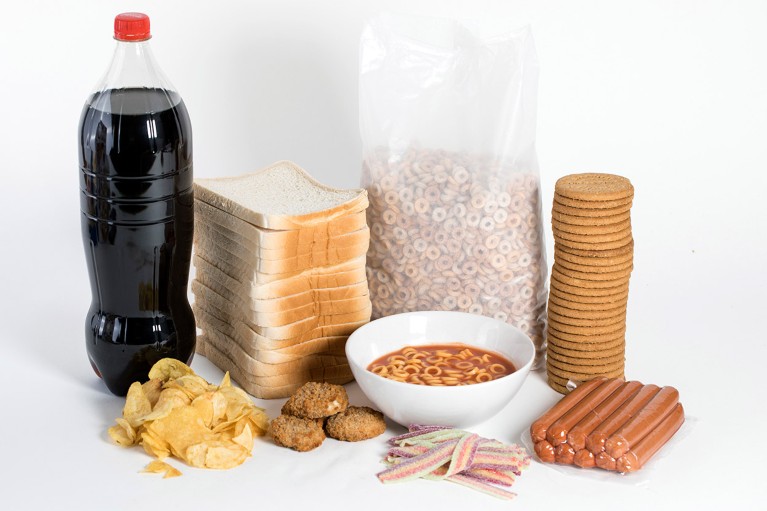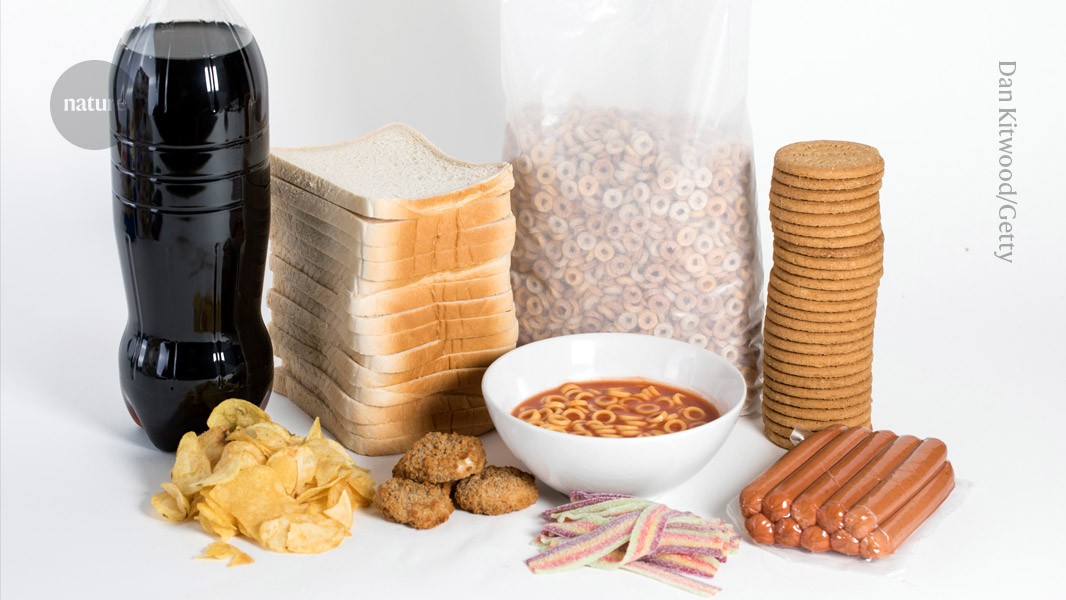
Diets rich in industrially manufactured food have been associated with several health conditions.Credit: Dan Kitwood/Getty
Molecules in urine and blood can reveal how much of a person’s diet comes from ultra-processed foods, according to a study published in PLOS Medicine today1. The paper suggests that these measurements provide an objective way to track consumption of ultra-processed food — and would be useful for investigating links to diseases such as diabetes and cancer.
Ultra-processed foods are industrially manufactured and often contain ingredients, such as additives and emulsifiers, that are not typically found in home-cooked food. From sweetened yogurts to factory-made bread and packaged snacks, “it’s a really wide range of foods”, says study co-author Erikka Loftfield, an epidemiologist at the US National Cancer Institute in Rockville, Maryland.
Studies have linked high consumption of ultra-processed food to an increased risk of obesity2, cardiovascular disease, diabetes and some types of cancer3. But these investigations have typically relied on asking individuals to remember what they have eaten, which can be unreliable.
Studies have also shown the potential of studying the products of metabolism excreted in the blood and urine, but only for a small number of such metabolites4,5. Loftfield and her colleagues have now expanded that analysis to include more than 1,000 metabolites, which are produced when the body converts food into energy.
“This work is important,” says Oliver Robinson, a molecular epidemiologist at Imperial College London. “There’s a lot of measurement error in traditional assessment methods for diet.”
Diet scoring
Loftfield and her colleagues studied samples collected from 718 healthy individuals aged 50–74 in 2012–13. The participants’ urine and blood samples had been collected twice, six months apart. The participants had also been asked — up to six times during the one-year study period — to record everything they had consumed the day before. Loftfield’s team labelled each food item, from the bun in a burger to the cheese slice, meat patty and ketchup, either ultra-processed or not.
The researchers then used a machine-learning technique to give each participant a score for how much of their daily energy intake came from ultra-processed foods, says Loftfield. They found that, on average, ultra-processed food accounted for 50% of the participants’ energy intake, but the range varied between individuals — from 12% to 82%. Individuals who consumed the most ultra-processed foods generally got more of their energy from carbohydrates, added sugars and saturated fats — and less from proteins and fibre — than did those who consumed lower levels of ultra-processed foods.
The researchers then analysed the participants’ blood and urine samples, looking for metabolites that were more common in the people whose diets contained lots of ultra-processed food.
Samples from people with diets rich in ultra-processed foods were more likely to contain a metabolite linked to an increased risk of type-2 diabetes — and some of these people’s urine samples contained a molecule produced by certain food packaging. They also contained fewer metabolites derived from fresh fruits and vegetables.


